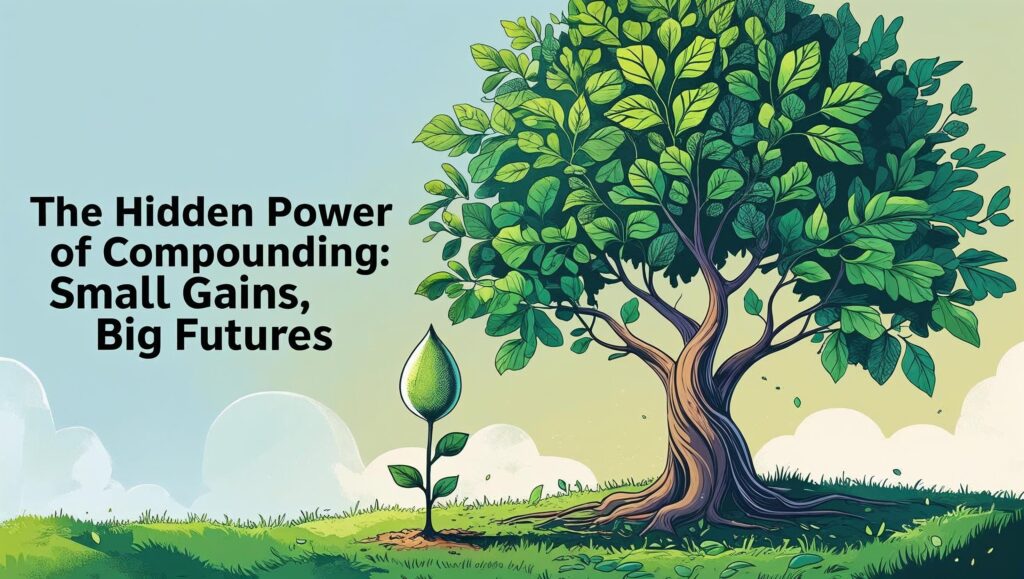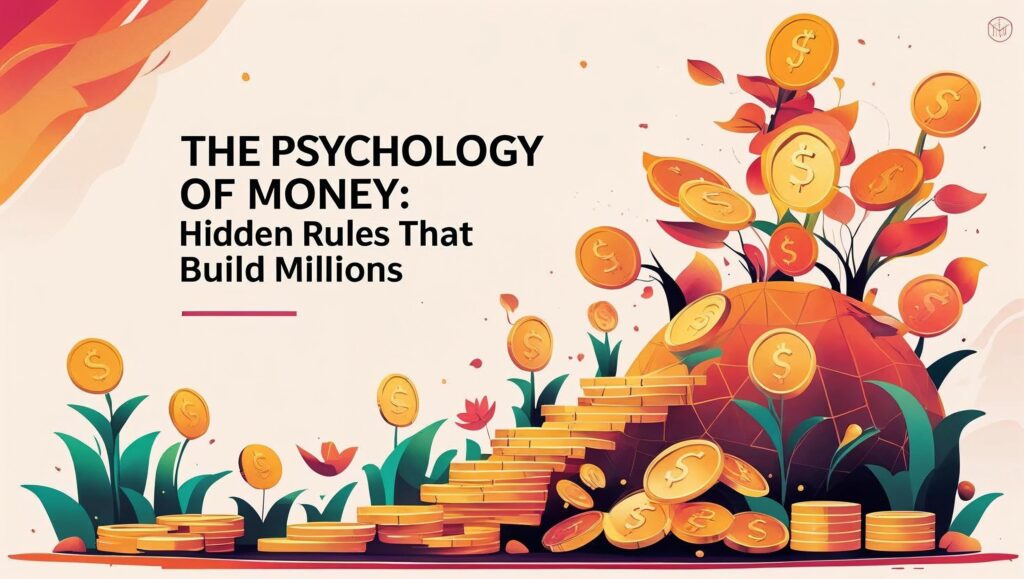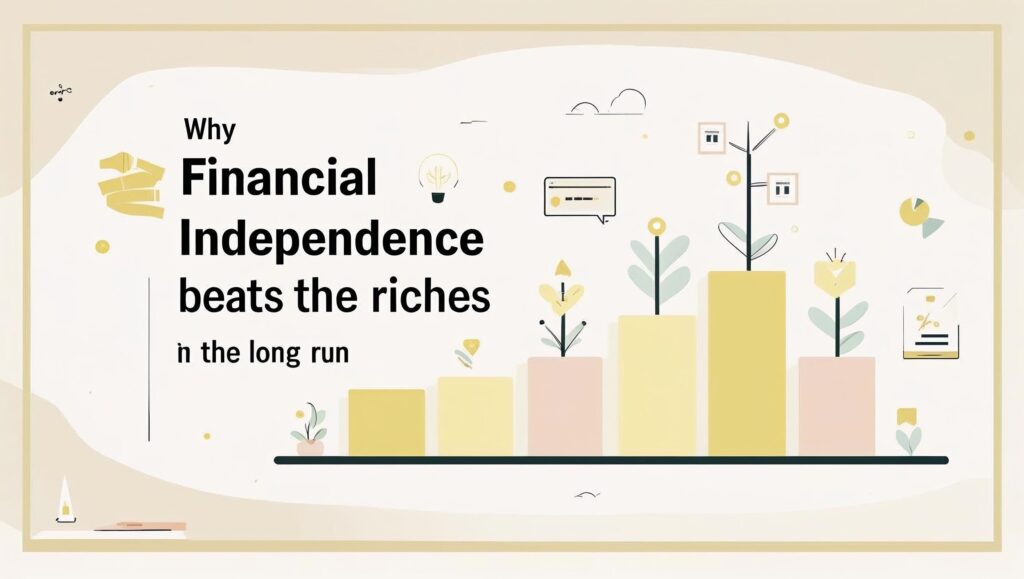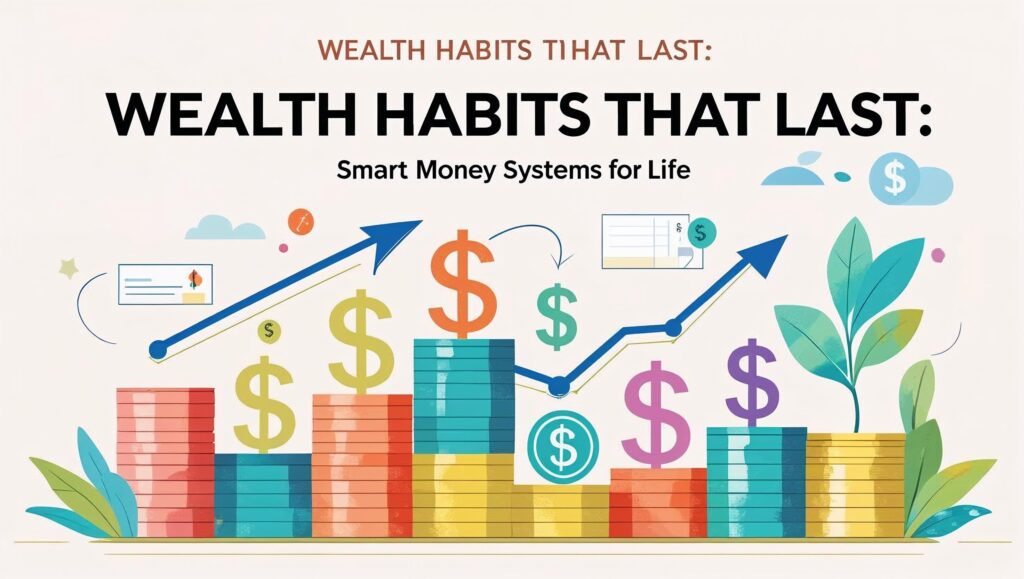
“Discover the hidden power of compounding – how small gains build big futures, driving financial independence, resilience, and lasting success.”
The Hidden Power of Compounding: Small Gains, Big Futures
Introduction
The Hidden Power of Compounding isn’t just about money—it’s a philosophy that shapes how we live, grow, and succeed. In 2025, amid a world obsessed with instant gratification, compounding reminds us of one truth: greatness is built gradually, not overnight.
Compounding teaches us that small, consistent actions generate extraordinary outcomes when given enough time. It explains why Warren Buffett’s fortune exploded after his sixties, why a daily 1% improvement transforms performance, and why true wealth is not flashy riches but the quiet freedom of independence.
This blog unpacks the 7 essential ways compounding transforms finance, health, knowledge, and relationships—and why embracing it is the ultimate long-term strategy.
Unlocking the True Meaning of Compounding
At its simplest, compounding means your gains generate further gains. In finance, it’s interest earning interest; in life, it’s habits reinforcing habits.
The magic lies in its delayed visibility. Early stages feel painfully slow—like planting seeds in barren soil. Then, suddenly, growth accelerates into exponential curves. The “overnight success” we see is often a decade of invisible compounding.
Albert Einstein called compounding the “eighth wonder of the world.” The real wonder isn’t complexity, but time’s ability to multiply even small actions into extraordinary results.
Why Compounding Matters Now More Than Ever
We live in an economy of immediacy: same-day delivery, viral fame, quarterly earnings. But true wealth—financial or personal—rarely arrives instantly.
Compounding is more than a financial principle; it’s a resilience principle. In an era of inflation, layoffs, and constant distractions, those who practice patience and consistency win.
- In finance, compounding protects against volatility by rewarding long-term investors.
- In personal growth, it beats short bursts of intensity with steady effort.
- In health, it shows that prevention outperforms cure over decades.
Compounding matters because time is the most valuable currency. Those who respect it create enduring wealth, habits, and freedom.
The Core Idea of Compounding
The power of compounding isn’t something limited to finance—it quietly shapes almost every part of life once you know where to look.
- Finance: Reinvesting dividends or interest may look small at first, but over years it builds into a snowball of wealth.
- Skills: Every hour of practice adds to the last. Over time, steady effort turns into mastery.
- Habits: Small daily routines—reading a few pages, walking for 20 minutes—slowly turn into ingrained behaviors that change your future.
- Relationships: A little care and attention, shown consistently, deepens trust and bonds over decades.
When you notice it, the power of compounding feels less like math and more like life’s secret advantage. It’s a reminder that patience, consistency, and steady systems often beat short bursts of intensity. Those who stick with the process quietly build results that feel almost magical years later.
Why Compounding Rewards Independence Over Riches
Compounding isn’t impressed by shiny cars or luxury lifestyles. It works quietly in the background, rewarding people who stay steady, patient, and consistent over years.
Those chasing riches often spend energy proving their success — buying the next upgrade, showing off status, and living under constant pressure to keep up. It looks exciting, but it’s fragile and exhausting.
Those focused on independence build habits and systems that keep working even when they take a break. They invest regularly, avoid lifestyle inflation, and value freedom over appearances. It may look simple, but it creates strength that lasts.
Riches make noise. Independence builds roots. And roots, when nurtured, grow into forests that can weather any storm.
The power of compounding isn’t just about growing money. It’s about growing choices, peace of mind, and control over your life.
A Tale of Two Friends: Riches vs Independence
Arjun and Mehul started their careers together.
Arjun chased riches. With every salary jump came a bigger car, fancier trips, and endless upgrades. From the outside, he looked successful. But inside, he was stuck — his expenses always rose as fast as his income, and the stress of maintaining his lifestyle never left.
Mehul took a quieter route. He focused on independence. He saved consistently, invested wisely, and avoided the trap of showing off. For years, his life seemed ordinary compared to Arjun’s. But compounding worked quietly in his favor. His money grew, and eventually, it began to support him instead of the other way around.
A decade later, Arjun is still running to maintain his image. Mehul, however, works because he wants to, not because he must. He enjoys freedom, peace, and time — things no luxury car can ever buy.
The takeaway? Compounding doesn’t reward the flashy race for riches. It rewards the patient builder of independence.
I’ve already shared a short comparison table on the key differences between Financial Independence vs Riches in my other article. You can find it in the Explore More section below.
How Compounding Translates Beyond Money
Most people reduce power of compounding to finance, but its real power is universal. It quietly shapes every part of life when you stay consistent.
- Knowledge → Reading just 10 pages a day adds up to 12+ books a year, which compounds into sharper thinking and better decisions. Over a decade, that becomes an entirely new level of wisdom that no shortcut can replace.
- Health → A 20-minute walk may feel negligible today, but stick to it for 10 years and you’ll slash risks of disease, boost energy, and enjoy a healthier old age. The power of compounding here is visible in every step you take.
- Relationships → Small gestures – checking in, sharing meals, offering kindness – layer over time into deep bonds of trust and love. Relationships don’t transform overnight; they compound through attention.
- Wealth → Even modest savings, if invested systematically, snowball into independence. Compounding teaches that financial peace doesn’t come from big wins, but from steady, repeated choices.
The real mindset shift? Compounding is about consistency over intensity. Doing a little every day beats doing a lot occasionally. It rewards patience, discipline, and the willingness to play the long game.
And once you notice it, you’ll see the power of compounding everywhere – in careers, in skills, in health, and in happiness. The small, repeated actions you commit to today quietly shape the person you’ll become tomorrow.
Lessons from the World’s Best Thinkers
The greatest minds converge on compounding:
- Warren Buffett: Built most of his $100B+ wealth after 65 through decades of compounding investments.
- Charlie Munger: Advocated “worldly wisdom” by compounding knowledge across disciplines.
- Naval Ravikant: Stresses compounding in wealth, relationships, and reputation as true leverage.
- Modern psychology: Shows habits compound neural pathways, making success second nature.
Compounding’s lesson is simple: play long, stay patient, trust the process.
Case Study: The Coffee Money Millionaire
Consider this: skipping a $5 coffee daily and investing it at 10% annual return equals $950,000 after 40 years. That’s the hidden force of small choices, quietly building a near-million-dollar future.
Uncommon example? A secretary named Grace Groner invested $180 in Abbott Labs stock in 1935. By the time she passed in 2010, her investment had compounded into $7 million, funding a scholarship program. She wasn’t a Wall Street insider – just a consistent, patient investor.
Building a Future Through Small Gains

So, how do you actually apply compounding?
- Start Early – Time is the most powerful multiplier.
- Stay Consistent – Systems beat short bursts of effort.
- Avoid Leakage – Debt, distraction, and poor habits erode compounding.
- Reinvest Growth – Let returns fuel more growth—whether money, skills, or trust.
- Play the Long Game – Results look invisible at first, then exponential later.
This formula works across finance, health, and even careers.
Compounding Beyond Finance: Habits in Action
- A student studying one extra hour daily masters subjects faster than peers.
- A professional writing one page daily publishes a book in a year.
- A leader investing small efforts in team morale builds loyalty that compounds into productivity.
The secret? Small, repeated actions become unstoppable when multiplied by time and that power of compounding.
Summary: The Hidden Force Shaping Tomorrow
Compounding is less about numbers and more about philosophy. It proves that:
- Small daily actions → massive long-term results.
- Financial independence beats flashy riches.
- Compounding applies equally to money, health, knowledge, and relationships.
- Patience and systems outperform shortcuts.
In short, compounding is the quiet architect of freedom and resilience.
Over to You
The question isn’t whether compounding works—it’s whether you’ll give it enough time.
👉 Start today. Save, learn, walk, connect—choose one small habit and let time multiply it into greatness.
👉 Share this post if it inspired you, and explore more of our insights on financial independence and lasting wealth.
Explore More
- The Psychology of Money: Rules That Shape Lasting Wealth
- Why Financial Independence Beats Riches in the Long Run : Think Beyond 2025
- Building Habits That Compound into Success
- 12 Money Rules I Learned From The Book: The Psychology of Money
FAQs
What does compounding really mean in simple words?
Compounding means your gains generate further gains. In money, it’s interest earning interest. In life, it’s habits building on habits — small actions today quietly multiply into big results tomorrow.
Why is compounding more powerful in the long run?
Because growth is slow at first, then accelerates. Like a tree, the roots take years to form before you see the tall trunk and branches. Most “overnight success” stories are really a decade of quiet compounding.
How does compounding apply outside of money?
It applies to everything — health, relationships, knowledge, and even careers. Walking daily compounds into fitness, reading regularly compounds into wisdom, and small gestures compound into deep relationships.
Why does compounding reward financial independence more than riches?
Because independence is about systems and freedom. Riches rely on constant showing off, but independence grows quietly through habits and investments that keep working even when you’re not.
What lesson do thinkers like Buffett and Naval Ravikant give about compounding?
They all stress patience and consistency. Buffett built most of his fortune after 65, Naval talks about compounding in reputation and relationships, and psychology proves habits shape the brain over time.
Why do most people give up on compounding too early?
Because in the beginning, the results are invisible. Saving a little or walking daily doesn’t show dramatic change in weeks. But compounding needs years, and many people quit before the magic begins.
Can compounding work against you?
Yes. Debt, bad habits, and procrastination also compound. Interest on loans piles up, unhealthy routines damage health, and wasted time multiplies lost opportunities. Compounding is neutral — it works for or against you.
Is it ever too late to benefit from compounding?
No. Starting early is best, but even starting late makes a big difference. The key is consistency. A 40-year-old who invests steadily can still retire with peace of mind because compounding accelerates over time.
How can someone practically start using compounding today?
Pick one small habit and repeat it daily. Save a fixed amount, read a few pages, or exercise 20 minutes. Automate the process if possible. The goal is not speed but consistency.
Why is compounding called the “eighth wonder of the world”?
Because it turns something small into something extraordinary without extra effort. Einstein believed it was so powerful that those who understand it earn from it, while those who ignore it pay for it.



